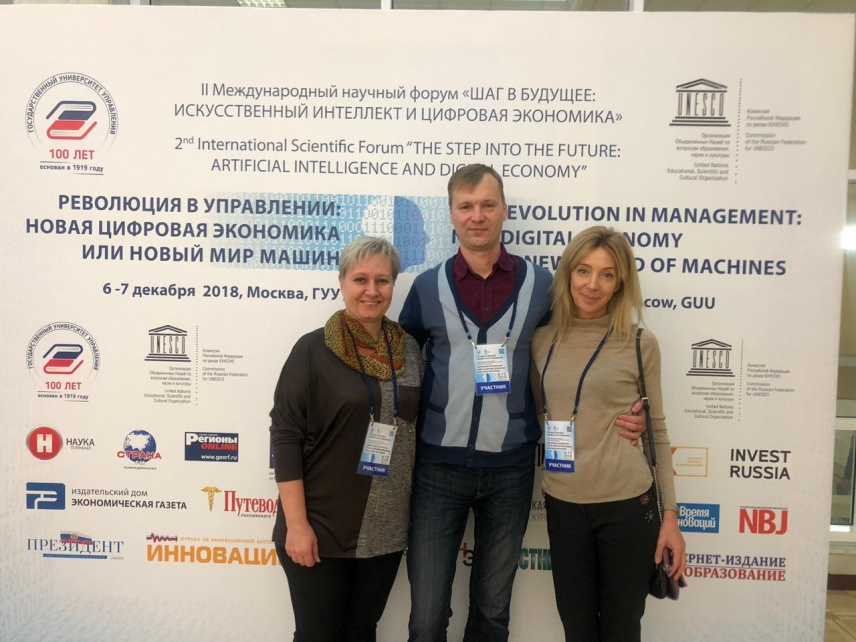
IEM teachers took part in the international scientific forum The Step into the Future: Artificial Intelligence and Digital Economy
What is digital literacy and why do we need a competency model? Will the robot replace the teacher and do the students want it? Hot debates about the digital transformation of education, about the collapse of the usual way of economics, and about many other things were held at the 2nd International Scientific Forum The Step into the Future: Artificial Intelligence and Digital Economy, in which IEM TSU teachers took part. Among the forumŌĆÖs speakers were also the famous scientists fr om Europa and China.
Faculty members of the Department of State and Municipal Administration and Department of Information Technologies and Business Analytics) took part in the Forum. It was organized by the Ministry of Education and Science of the Russian Federation and the State University of Management (Moscow). In two days, more than 1,000 Russian and international scientists, politicians, and experts from Germany, Finland, the Netherlands, France, China, Vietnam, the BRICS countries, and the CIS countries took part in the forum.
The stated topic was Revolution in Management: a New Digital Economy or a New World of Machines. What are the main challenges, implications, prospects, and key advantages of new approaches in the practice of managing subjects of the digital economy?
- The participation of TSU teachers in such a large-scale forum has once again confirmed that our university has already become a recognizable brand of the digital world, it is recognized that our education and science are at the world level, says Natalia Eremina, the teacher of the Department of State and Municipal Administration. - My colleagues took part in the work of the section Digital Economy and Artificial Intelligence: the Collapse of the Usual Way of Economics and the New Technogenic Society, and I have visited the section Digital Technologies in Education. The general plenary session began with the participants being asked to get their smartphones and take part in the electronic voting: what is digitalization - the collapse of civilization or the new possibilities of humanity. Subsequently, our discussion was centered on the issues of digital-transformation of education, training of personnel for the digital economy, and increasing the information competence of educators. Specialists whose profession is connected with computer technologies easily find their place in the new digital reality. But what about those whose activities are related to the humanities sphere? It turns out that philosophers and sociologists, lawyers and economists are highly in demand in the new digital world: they have to solve the problems of a new reality, wh ere people in everyday life constantly interact with artificial intelligence. The particularly heated debate was the issue of the digital transformation of education. What is digital literacy, why do you need a competency profile? Will the robot replace the teacher and do the students want it? There were more questions than answers, but the active discussion gave a hope that humanity will cope with the digital challenge.
